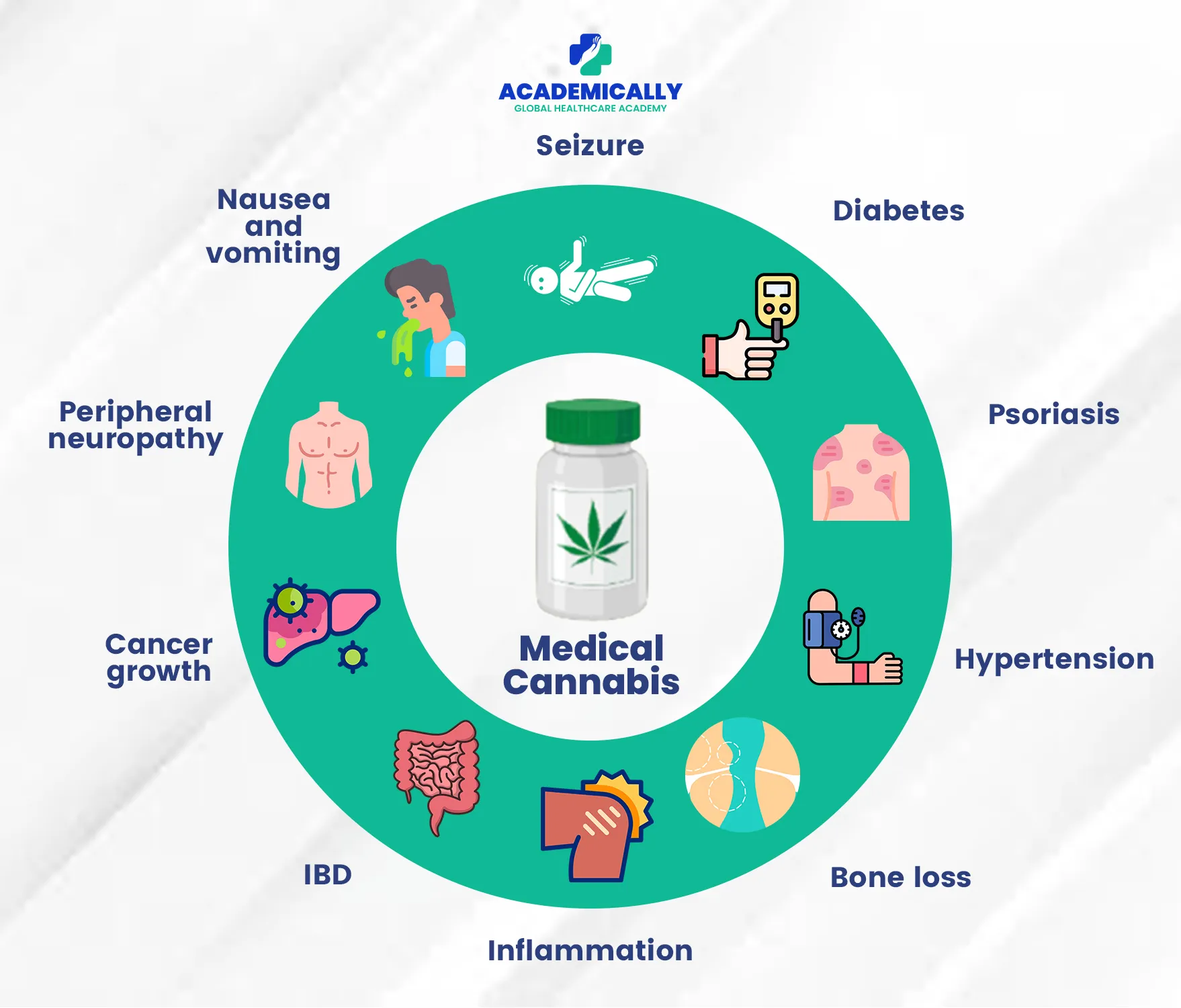You must have read about Germany and South Africa’s decision to legalise cannabis use for personal, professional and medical uses, but let us understand the reason behind this significant change in narcotics laws. To move further in this discussion, we must first understand Cannabis.
Cannabis refers to a group of three plants with psychoactive properties:
Cannabis sativa
Cannabis indica, and
Cannabis ruderalis
It is commonly known as marijuana or weed and is widely used for its psychoactive effects. Some of its forms can alter perception, mood, and consciousness.
Cannabis has also been known for its medicinal benefits, such as treating epilepsy and alleviating chronic pain and nausea.
This blog will discuss the many medicinal uses of cannabinoids.
What Are Cannabinoids?
Cannabinoids are naturally occurring compounds found in cannabis plants. They influence the body's endocannabinoid system. This is a sort of control system in our bodies and helps regulate a range of physiological processes. The two most well-known cannabinoids are THC (tetrahydrocannabinol) and CBD (cannabidiol), but did you know there are over 100 different cannabinoids?

Medical Benefits of Cannabinoids
Here are some of the vital medical benefits of cannabinoids, ranging from offering relief to chronic pain to being used as a treatment for medical conditions like anxiety and inflammatory diseases.
1. Pain Relief
Cannabinoids are widely recognized for their analgesic properties, making them effective in managing chronic pain conditions such as
- Arthritis
- Fibromyalgia
- Neuropathic pain
They work by interacting with pain receptors in the brain and reducing inflammation.
2. Epilepsy Treatment
- CBD, in particular, has shown promise in reducing the frequency and severity of seizures in patients with epilepsy.
- This includes those with treatment-resistant forms like Dravet syndrome and Lennox-Gastaut syndrome.
3. Anti-Inflammatory Effects
Cannabinoids have anti-inflammatory properties that can help manage autoimmune diseases and inflammatory conditions such as
- Crohn's disease
- Ulcerative colitis
- Multiple sclerosis
4. Anxiety and Depression
- CBD has been studied for its potential to reduce anxiety and depression.
- It may help manage symptoms by interacting with serotonin receptors in the brain, which play a role in mood regulation.
- Patients report feeling calmer and experiencing improved overall mental well-being.
5. Nausea and Vomiting
- Cannabinoids, particularly THC, are effective in reducing nausea and vomiting associated with chemotherapy and other medical treatments.
- They help improve appetite and reduce the adverse effects of cancer treatments, enhancing patient comfort and nutritional intake.
6. Sleep Disorders
- Cannabinoids may aid in the treatment of sleep disorders such as insomnia and sleep apnea.
- It does so by promoting relaxation and reducing anxiety.
- They can help improve sleep quality and duration, allowing for more restful nights.
7. Neuroprotective Properties
- Emerging research suggests that cannabinoids may have neuroprotective effects.
- This could be beneficial in treating neurodegenerative diseases such as
- Alzheimer's disease
- Parkinson's disease
- Amyotrophic lateral sclerosis (ALS)
- They may help protect nerve cells and slow disease progression.
8. Cancer Treatment
- Cannabinoids are being explored for their potential anti-cancer properties.
- Some studies suggest that they may inhibit the growth of cancer cells and promote apoptosis (cell death) in certain types of cancer.
- While more research is needed, cannabinoids could become a complementary therapy in oncology.

The Science Behind Cannabinoids
Cannabinoids work by interacting with cannabinoid receptors in our body. These receptors are part of the endocannabinoid system, which helps regulate mood, appetite, pain, and immune response.
Tetrahydrocannabinol (THC) is one of the most well-known cannabinoids. It is mainly recognised for its psychoactive effects, which produce the characteristic ‘high’ associated with its use. THC binds to the CB1 receptors in the brain, affecting neurotransmitter release and changing
- Perception
- Coordination
- Cognitive function
Cannabidiol (CBD), another cannabinoid, is non-psychoactive and does not induce a high. It interacts with CB1 and CB2 receptors in our body, though its exact mechanisms are still under study. CBD is commonly used to address conditions such as
- Epilepsy
- Chronic pain
- Anxiety
- Inflammation
It has anti-inflammatory, analgesic, and anti-anxiety properties.
The pharmacodynamics and pharmacokinetics of cannabinoids are important topics for those preparing for exams like the Overseas Pharmacists Readiness Assessment (OPRA). For example:
- Mechanism of Action: Knowing how THC and CBD interact with the endocannabinoid system can help answer questions related to drug mechanisms.
- Therapeutic Uses: Understanding the medicinal benefits of cannabinoids, such as their use in epilepsy and chronic pain, can be relevant for clinical pharmacology sections.
- Regulatory and Legal Aspects: Awareness of global shifts in cannabis legislation could provide insights into pharmaceuticals' socio-economic impacts.

Conclusion
For those preparing for the Overseas Pharmacists Readiness Assessment (OPRA) Exam, a deep understanding of cannabinoids' pharmacological aspects is crucial. From their mechanisms of action to their therapeutic uses, cannabinoids comprise a significant amount of the course topic.
The medical benefits of cannabinoids are vast and continue to be a significant area of research. From pain relief and anti-inflammatory effects to treating epilepsy and anxiety, these compounds offer promising therapeutic potential. As legalisation becomes common and research advances, cannabinoids could offer new treatments for various health issues, offering hope for patients worldwide.
Visit Academically to learn more about such brilliant compounds.






